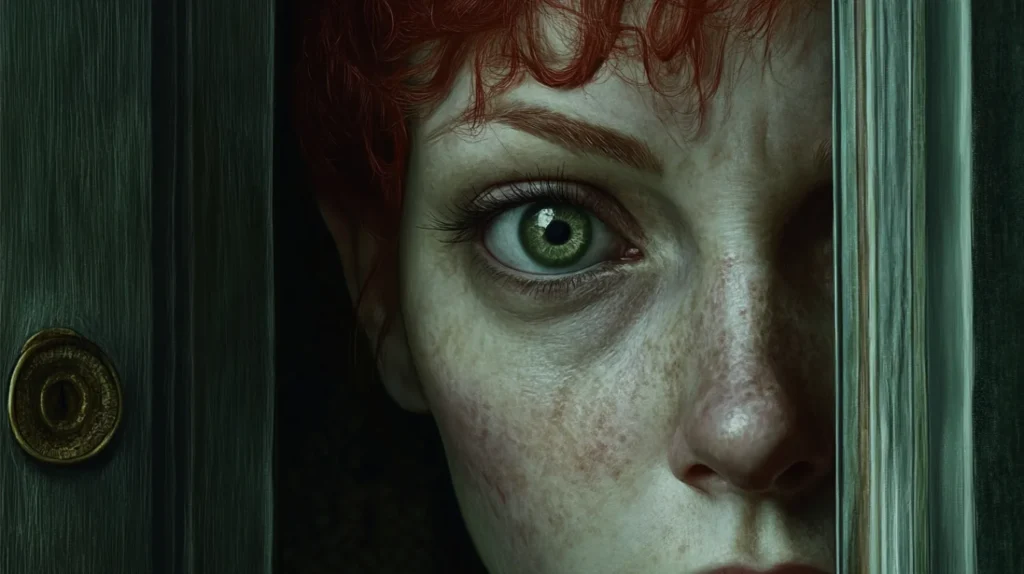Nightmares: Friend or Foe? We’ve all experienced them – those heart-pounding, sweat-inducing dreams that jolt us awake in the middle of the night. But what if these terrifying nocturnal experiences were actually doing us a favor? In this post, we’ll explore the surprising benefits of bad dreams and why your nightmares might be good for you.
Key Takeaways:
- Nightmares can help process emotions and prepare for real-life challenges
- Bad dreams may enhance problem-solving skills and creativity
- Understanding nightmares can lead to improved mental health and self-awareness
- Techniques exist to harness the positive aspects of nightmares
Introduction
We’ve all been there – heart racing, palms sweating, jolted awake by a vivid nightmare. These unsettling dreams can leave us feeling shaken and anxious, often lingering in our minds long after we’ve woken up. But what if I told you that these nocturnal terrors might actually be doing you a favor?
In this post, we’ll dive deep into the world of nightmares and explore why they might be more friend than foe. We’ll uncover the surprising benefits of bad dreams and how they can contribute to our mental health, emotional processing, and even our problem-solving abilities. So, grab a cup of coffee (or chamomile tea if you’re still jittery from last night’s dream), and let’s embark on this fascinating journey through the dark corners of our subconscious.
The Nature of Nightmares

Before we delve into the benefits, let’s first understand what nightmares really are. Nightmares are vivid, disturbing dreams that typically occur during the Rapid Eye Movement (REM) stage of sleep. They often evoke strong emotions such as fear, anxiety, or disgust, and can feel incredibly real while we’re experiencing them.
But why do we have nightmares in the first place? Psychologists and neuroscientists have long debated this question. Some theories suggest that nightmares are a way for our brains to:
- Process and cope with daily stresses
- Rehearse potential threats
- Work through unresolved emotions or traumas
Interestingly, nightmares might be an evolutionary adaptation that helped our ancestors survive by simulating dangerous scenarios in a safe environment. This brings us to our next point – the surprising benefits of these unsettling dreams.
For more information on dream interpretation and understanding the messages hidden in your nightmares, visit https://dreammeaningexplorer.com/. This comprehensive resource can help you delve deeper into the fascinating world of dreams and their meanings.
The Unexpected Benefits of Nightmares
1. Emotional Processing and Regulation
One of the most significant benefits of nightmares is their role in emotional processing. When we experience intense emotions or stressful situations during our waking hours, our brains may use nightmares as a way to process and make sense of these feelings.
Dr. Rosalind Cartwright, a sleep researcher, suggests that dreams and nightmares help us regulate our emotions. By reliving and reprocessing difficult experiences in our sleep, we may be better equipped to handle similar situations in our waking life.
Have you ever noticed that after having a nightmare about a particular fear or anxiety, you felt more prepared to face it in real life?
2. Enhancing Problem-Solving Skills
Believe it or not, your nightmares might be giving your problem-solving skills a workout. When we’re faced with challenging scenarios in our dreams, our brains are actively trying to find solutions – even if those solutions seem bizarre or impossible in the dream state.
This mental exercise can translate to improved problem-solving abilities in our waking life. The next time you’re faced with a tricky situation at work or in your personal life, you might find that your mind is more agile and creative in finding solutions.

3. Boosting Creativity
Speaking of creativity, nightmares can be a wellspring of creative inspiration. Many artists, writers, and musicians have drawn inspiration from their dreams and nightmares. The surreal and often abstract nature of these dreams can spark unique ideas and perspectives.
For example, Mary Shelley’s idea for “Frankenstein” came from a nightmare, and Salvador Dali’s paintings were heavily influenced by his dreams. So, the next time you have a particularly vivid nightmare, consider jotting it down – it might just be the seed of your next creative masterpiece!
4. Preparing for Real-Life Challenges
Nightmares can serve as a form of mental rehearsal for dealing with difficult situations. By simulating threatening or challenging scenarios, our brains may be preparing us to face similar situations in real life with more confidence and resilience.
This ties back to the evolutionary theory of nightmares – our ancestors who were better prepared for threats thanks to their nightmares may have had a survival advantage.
5. Increased Self-Awareness
Analyzing and reflecting on our nightmares can lead to greater self-awareness. The themes, emotions, and scenarios that play out in our bad dreams often reflect our deepest fears, anxieties, and unresolved issues.
By paying attention to recurring themes in your nightmares, you might gain valuable insights into aspects of your life that need attention or areas where you’re experiencing stress or conflict.
Harnessing the Power of Nightmares

Now that we understand the potential benefits of nightmares, how can we make the most of these unsettling experiences? Here are some techniques to help you harness the power of your bad dreams:
- Keep a dream journal: Write down your nightmares as soon as you wake up. This can help you identify patterns and gain insights into your subconscious mind.
- Practice lucid dreaming: Learning to become aware that you’re dreaming while in the dream state can help you take control of nightmares and turn them into positive experiences.
- Reflect on your nightmares: Instead of trying to forget your bad dreams, take some time to think about what they might be telling you. What emotions did you experience? What situations or themes were present?
- Use nightmare imagery in creative projects: Channel the vivid imagery and intense emotions from your nightmares into creative endeavors like writing, painting, or music.
- Seek professional help if needed: If nightmares are severely impacting your quality of life or seem to be related to past trauma, don’t hesitate to consult a mental health professional.
Conclusion
As we’ve explored in this post, nightmares, while unsettling, can offer surprising benefits to our mental health, emotional well-being, and cognitive abilities. From helping us process emotions and enhance problem-solving skills to boosting creativity and self-awareness, these nocturnal adventures might be more friend than foe.
The next time you wake up in a cold sweat from a particularly vivid nightmare, take a deep breath and remember – your brain might just be doing you a favor. By understanding and harnessing the power of our bad dreams, we can turn these unsettling experiences into opportunities for growth, creativity, and self-discovery. Sweet dreams… or should we say, productively unsettling dreams?

